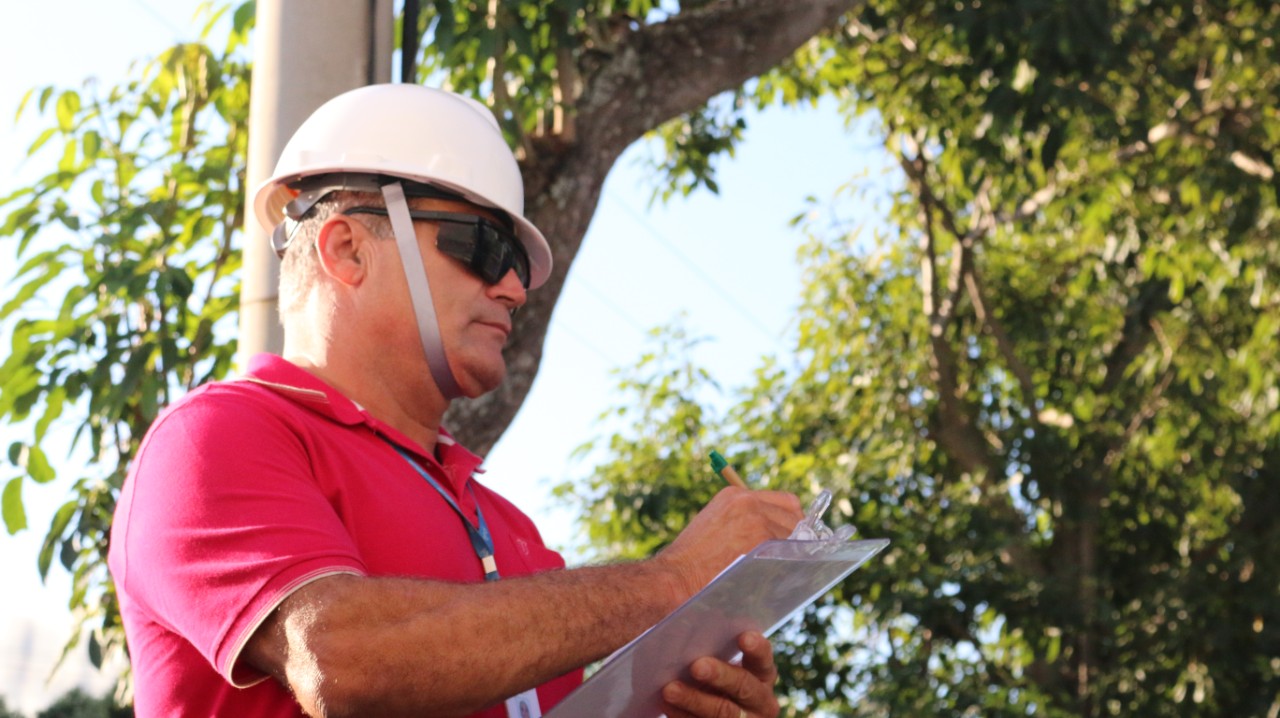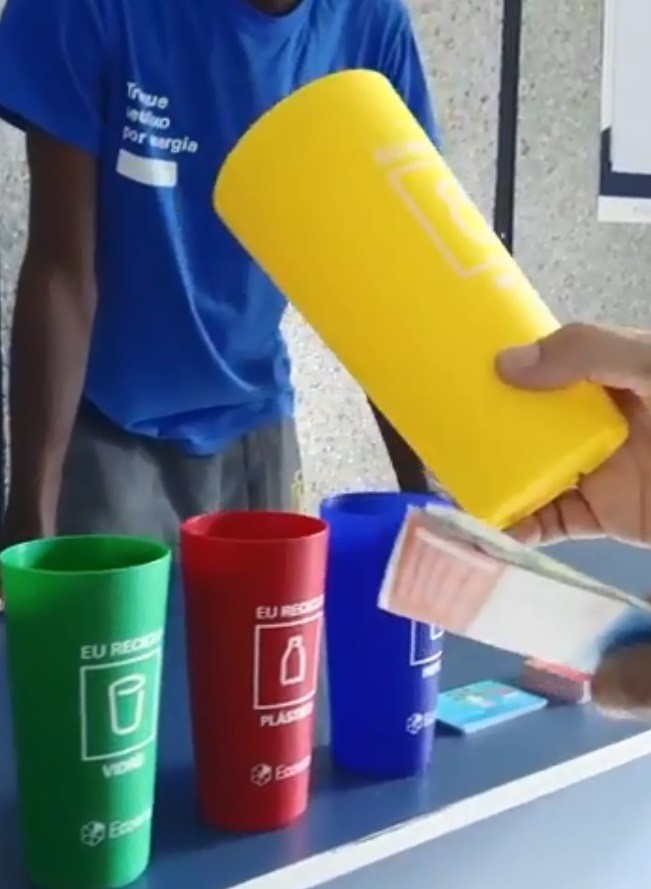“At the age of 12 I was diagnosed with third-degree cerebral dysrhythmia and even my own family believed that the chances of me having a career were very small. But I knew that the day I had the opportunity to handle a pair of pliers, I would never leave this trade. Little by little, watching my brothers at work, I learned, studied a lot and was able to become an electrician.”
Today, Dorvalino is an example not only to his brothers, but also to hi work colleagues and the community he inhabits. Due to the challenges he faced, he decided to put together, on his own, a school to teach the fundamentals of electricity to deprived children. The first class graduated at the end of March and 25 new electricians are now available in the job market:
“The school project started 22 years ago, but only now I was able to make it into a reality. Instead of getting a new car, I decided to invest in this dream because I believe that electricity has the power to improve the story of any person who has the will to do so. My goal is to make it easier for others that which was hard for me. Seeing a professional who never imagined working with energy assembling an electric control, for example, makes me very proud.”
Inspiration and innovation, night and day
At Enel, Dorvalino’s role is mostly street-based, doing maintenance on electrical grid equipment, voltage reclosers and regulators and circuits: “From the plant until the energy arrives at the customer’s meter, even though I don’t know everything, I am always trying to help, giving support, observing the processes to make new suggestions of how to improve the work.”
Since 2013, Dorvalino takes active part in the Inspire programme, created by Enel to promote employee’s ideas. The project reinforces one of the most important pillars of the Open Power philosophy: innovation.
“In these five years of Inspire, Dorvalino has already taken part in 15 projects, of which four were cycle champions and four annual champions. His ideas, many of them simple, coming from day-to-day observations, have helped us to greatly improve our safety processes and service. He really is an inspiration to us all.”
At least two projects deserve to be highlighted. Upon noticing many colleagues got involved in accidents while installing earth rods, traditionally performed using a mallet, Dorvalino had the idea of connecting an electric hammer to optimise the process. This way, as well as reducing the physical effort required by workers, the installation, which depending on soil traits could take up to 15 minutes, could be performed in about five minutes instead. Furthermore, a process that demanded at least five employees can now be performed by one technician.
Another project, dubbed “Test Bag”, vastly improved the relationship between the distributor and the final customer. Often when technical teams visit a residence in response to a call, there is nobody home and some electrical devices are switched off. Technicians then use an ammeter to directly verify the load on the meter, which generally does not display oscillations. However, later on when a more powerful electric shower or air conditioner is turned on, it is possible for the fault to manifest itself again.
To enable teams to identify issues on the first visit, solving the customer’s call out, Dorvalino created a device capable of generating a larger load autonomously. This way the test cables of the bag highlight any discrepancy that needs correcting immediately, even if the customer is out. The prototype developed by Dorvalino is already being improved by external suppliers and has been adopted as “internal procedure” that must be followed by third parties. At least 16 “Test Bags” are already being used by technical teams in the Mountain Region of the state of Rio.
“To innovate is to believe that things can be better than they are. It is not accepting that things are set in stone just because it has always been done that way. I believe there are two groups of people in the world: those whose life passes by, who blame others for any problem; and those who go through life to create a legacy. I am part of the second group. I may fall down, but I will get up as many times as needed. I want to be remembered for leaving my mark. To me, this is innovation, making a mark wherever you go.”
Isn’t Dorvalino’s story a great example of resilience and innovation?





